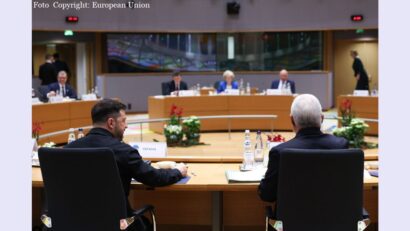Waiting for the Referendum in Greece
No matter how the situation unfolds in Greece, the Greek banks in Romania will not be harmed, says the Governor of the Central Bank Mugur Isarescu

Ştefan Stoica, 02.07.2015, 14:18
On Wednesday
morning, there were signs that a rescuing compromise for Greece was a possible
scenario. The government in Athens would have accepted, with some amendments,
the agreement proposal drafted by the international creditors and even
displayed some willingness to drop the
referendum. Everything fell apart, however, in the afternoon, when the Greek
Prime Minister Alexis Tsipras announced that Sunday’s referendum would be held
as planned. Moreover, he called on his co-nationals to say ‘no’ to the program
proposed by the creditors. As a result of that, communication between Athens
and Brussels was cut and chances of it being resumed on Monday depends on the
outcome of Sunday’s referendum. European leaders have warned that a
predominantly ‘no’ would translate into exiting the Eurozone, but this is an
interpretation that Tsipras vehemently rejects.
The head of the conservative
opposition, the former Prime Minister Antonis Samaras, has called on the Greek
citizens to say ‘yes for Europe’. Citizens’ sense of responsibility should
prevail over that of the Government, said Samaras, who believes that Greece is
now in the most critical situation of
the past decades. The Greek crisis is carefully observed in Bucharest
too. The Governor of the National Bank of Romania, Mugur Isarescu, has again
called for calm and wisdom, and has urged those who have deposits in banks with
Greek capital in Romania to refrain from acting on emotional impulse and withdraw their deposits. He has explained
that all these banks are safe, well capitalized and subject to the Central
Bank’s regulations, not to Greece’s decision. And, in case panic strikes, the
Central Bank is ready to intervene. Mugur Isarescu:
The
National Bank has adopted measures that will ensure liquidities even in those
situations in which, because of some emotional reasons generated by rumors or
overreaction, the banks would find it hard to get liquidities in the market,
despite their situation being a good one. Banks can secure liquidity, then
can get liquid assets from the National Bank, the interest rate is low and the
only ones who would lose in such a situation are the depositors. They would
waste time, would lose interests, as small as it may be, and also they would
lose money in the form of withdrawal commissions.
On the
other hand, even if the situations of the two countries cannot be compared – as Greece is on the brink of financial
collapse and Romania stands on a strong financial and banking ground – the Greek crisis is food for some serious
reflection on the relationship with partners such as the IMF and the EU. Mugur
Isarescu:
The
insecure financial background on the one hand, dominated by the situation in
Greece and in the Eurozone in general, and the domestic context on the other,
are evidence that the agreements with our international partners, the IMF and the EU, must be maintained, in
various forms. I believe that negotiations will continue, and it’s good that
they will, because this is a matter of credibility.
Just like the IMF and the European
Commission, Mugur Isarescu does not believe that there is enough economic
evidence to justify the fiscal relaxation initiated by the government, which is
a bone of contention between the
Romanian executive and the international financial institutions.






























